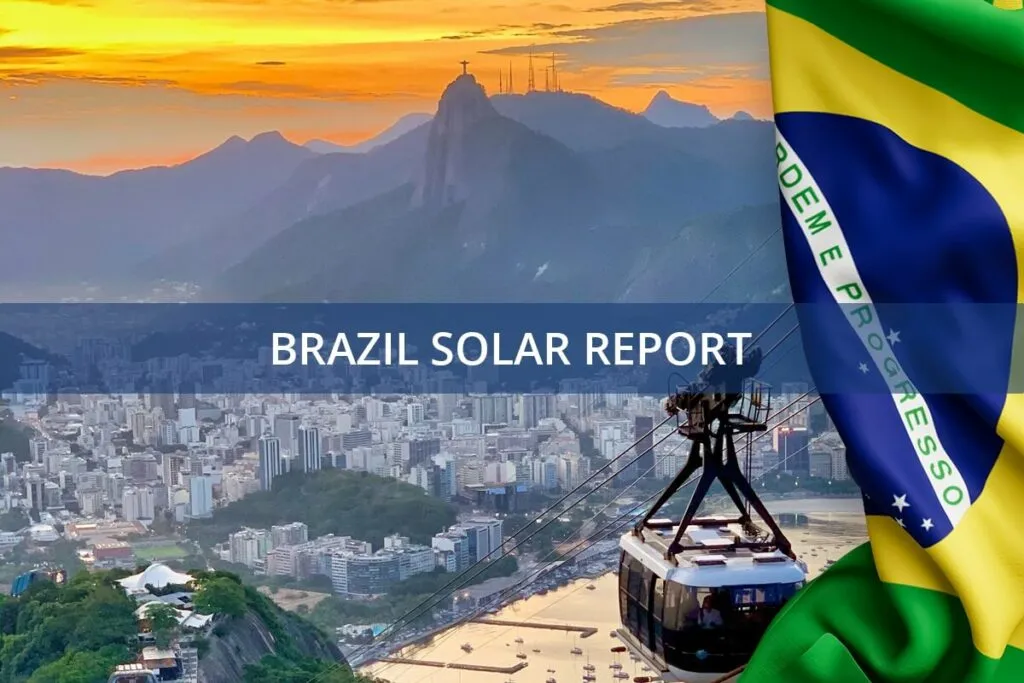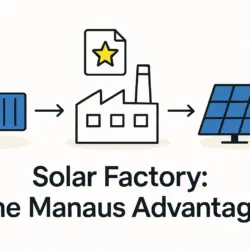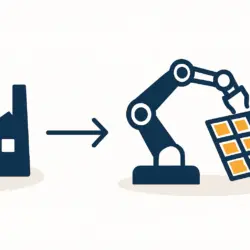Brazil has launched a landmark partnership with the Global Energy Alliance for People and Planet (GEAPP) to provide electricity to 1.5 million people in remote Amazon communities. Unveiled at the COP30 climate summit in Belém, the five-year collaboration will focus on deploying clean energy sources like solar and wind power to drive sustainable development and economic opportunity.
Powering Remote Communities in the Amazon with Clean Power
In a significant move toward universal energy access, Brazil is embarking on a project to bring electricity to some of the most isolated communities in the Amazon. The initiative, announced in partnership with the Global Energy Alliance for People and Planet (GEAPP), aims to deliver reliable, renewable power to areas that have historically been left off the grid.
The partnership will see GEAPP work alongside state-controlled power company Eletrobras and its subsidiary, Eletronorte, to develop a comprehensive plan for energy delivery. This includes extending the national grid where feasible and deploying decentralized clean energy solutions, such as solar and wind power, in areas too remote for conventional connection. The goal is to ensure every household in the Amazon has access to electricity, powering not just homes but also essential services like schools and health centers, and supporting local industries like açaí processing and fishing.
“This is about more than electricity—it’s about dignity, livelihoods, and a just future for every family,” said Woochong Um, CEO of GEAPP. “What we build here in the Amazon can become a blueprint for equitable electrification and inclusive growth across Latin America and beyond.”
Overcoming Challenges with Amazon clean power
The ambitious project, set for completion by 2030, requires an estimated investment of $8 billion. While the Brazilian government will provide partial financing, it is also exploring additional funding avenues. GEAPP will contribute financing and technical assistance, including a crucial study to determine the most efficient management of the new energy infrastructure, expected to be completed by the end of 2025.
One of the project’s greatest hurdles is the Amazon’s vast and challenging terrain, characterized by dense rainforests and villages often inaccessible by road. Currently, many of the 1.5 million residents in these areas depend on expensive and polluting diesel generators for power. This initiative aims to replace these fossil fuel sources with clean alternatives. By transitioning to renewables, the government intends to reduce the environmental impact of energy generation while providing a more stable and cost-effective solution. This transition builds on the country’s impressive growth in renewables, as Brazil’s solar power capacity hits 55 GW milestone, demonstrating a strong foundation for such projects.
A Broader Commitment to Amazon clean power
This Amazon electrification project is a cornerstone of President Luiz Inácio Lula da Silva’s wider commitment to a green energy transition for Brazil. Highlighting this on the global stage, President Lula announced that Brazil would join the Just Energy Transition Partnership (JETP), a G7-led initiative supporting developing nations in their move toward cleaner energy.
This commitment is backed by a plan to invest $5 billion in extending the national power grid to connect 7 million people currently without electricity, aiming for universal access by the end of 2026. This national strategy has earned praise from the International Energy Agency (IEA), whose 2025 report highlighted Brazil’s leadership in clean and secure energy. Initiatives like these, which expand clean energy access, are critical to creating a more equitable and sustainable energy future. The ongoing expansion of projects, such as when VH Global expands portfolios to 12 solar DG sites in Brazil, further illustrates the nation’s dedication.
Global Support for Brazil’s Amazon clean power Goals
GEAPP’s involvement underscores the power of international cooperation in tackling global energy and climate challenges. Launched at the UN climate summit in 2021, GEAPP is dedicated to fast-tracking the shift to renewable energy in developing countries. The partnership with Brazil is a prime example of this mission in action.
International support for Brazil’s renewable sector is growing, with significant commitments from global partners. A notable example is the UK solar exports: $13 Billion Pledge is Essential commitment to help finance green projects in the country. With backing from organizations like GEAPP and the JETP, Brazil is solidifying its position as a leader in renewable energy and sustainable development.
The Amazon electrification project is a powerful demonstration of how Brazil is translating its clean energy ambitions into tangible action. By investing in renewable infrastructure, the country is not only improving the lives of its citizens but also making a vital contribution to the global fight against climate change.
To learn more about the fundamentals of solar energy technology and its deployment, consider enrolling in our free e-course.



